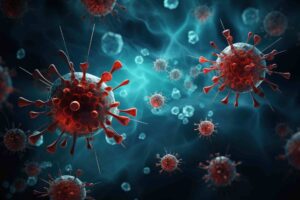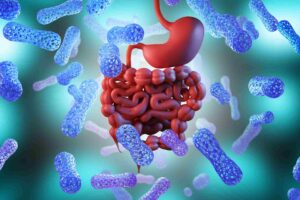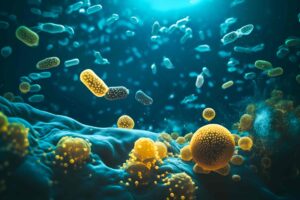Gastroenterology
Gastroenterology, Scientific research
This study highlights the potential risks associated with the use of nanoparticles in food production and processing.
Gastroenterology, Scientific research
The findings suggest that Dau-d4 can supplement current DPP4 treatment approaches for type 2 diabetes.
Gastroenterology
The findings of a recent study may help identify targets for the prevention or treatment of rheumatoid arthritis and other inflammatory conditions.
Gastroenterology
The findings of a recent study suggest that microbial consortia such as MET-2 may be effective strategies to keep intestinal pathogens and antibiotic-resistant organisms at bay.
Gastroenterology
The findings of a recent study suggest that even mild cases of COVID-19 can disrupt the gut microbiota.
Gastroenterology, Scientific research
The findings of a recent study provide insights into how industrialized lifestyles have influenced the composition of the human gut microbiota.
Gastroenterology, Scientific research
The findings of a recent study may help researchers to characterize the composition of the human gut microbiota in health and disease.
Gastroenterology, Oncology
The findings of a recent study suggest that FMT is an effective strategy to mitigate the intestinal side effects of cancer immunotherapy.
Gastroenterology, Neuroscience
Understanding how gut microbes are linked to preclinical Alzheimer’s disease could help to identify markers of disease risk.
Gastroenterology, Neuroscience
A recent review highlights that changes in fear-related mental health conditions are observed when the gut microbiota is altered or removed.











